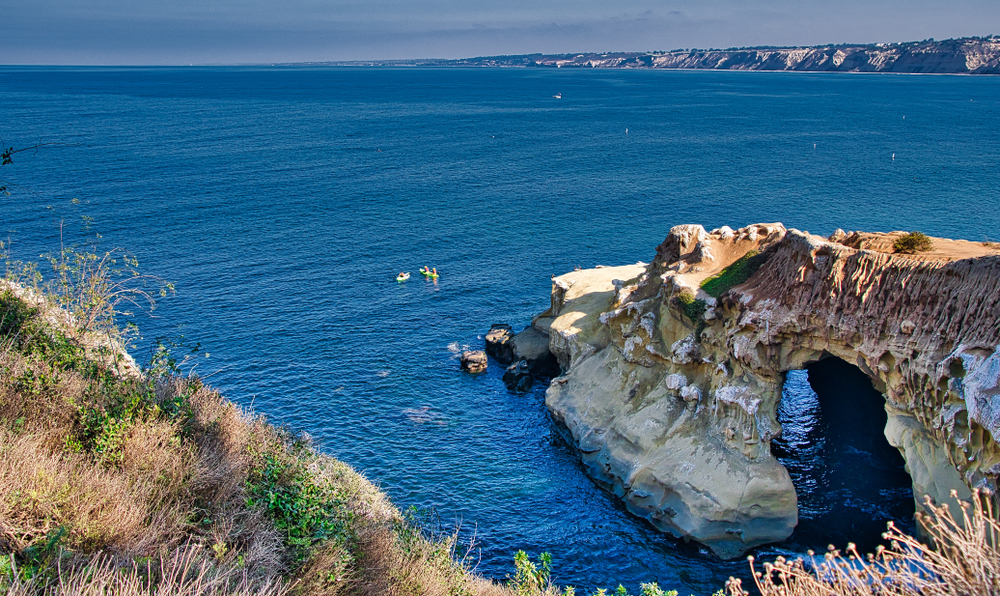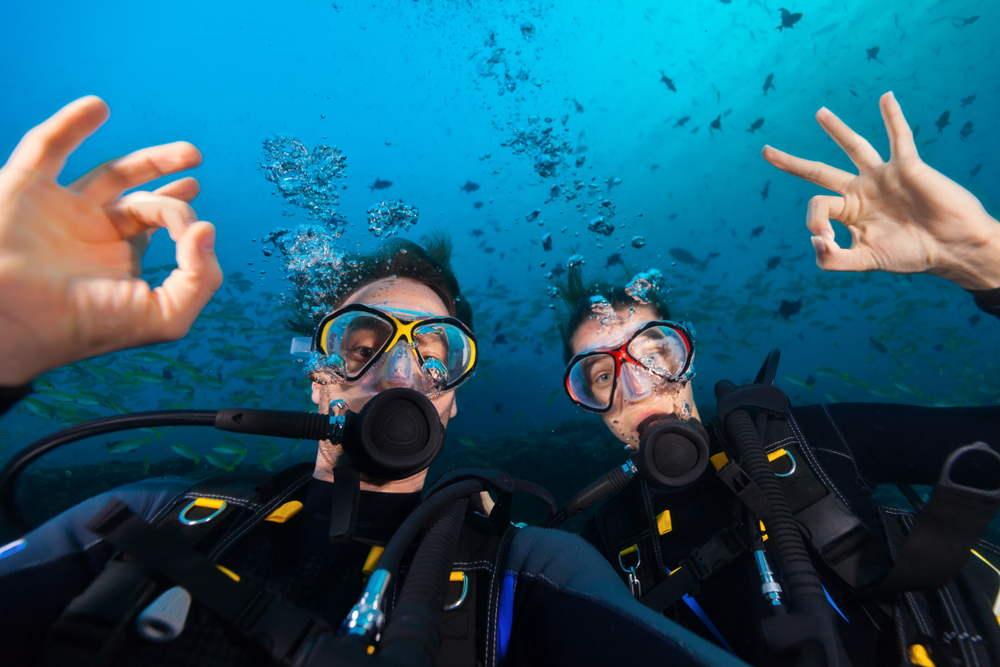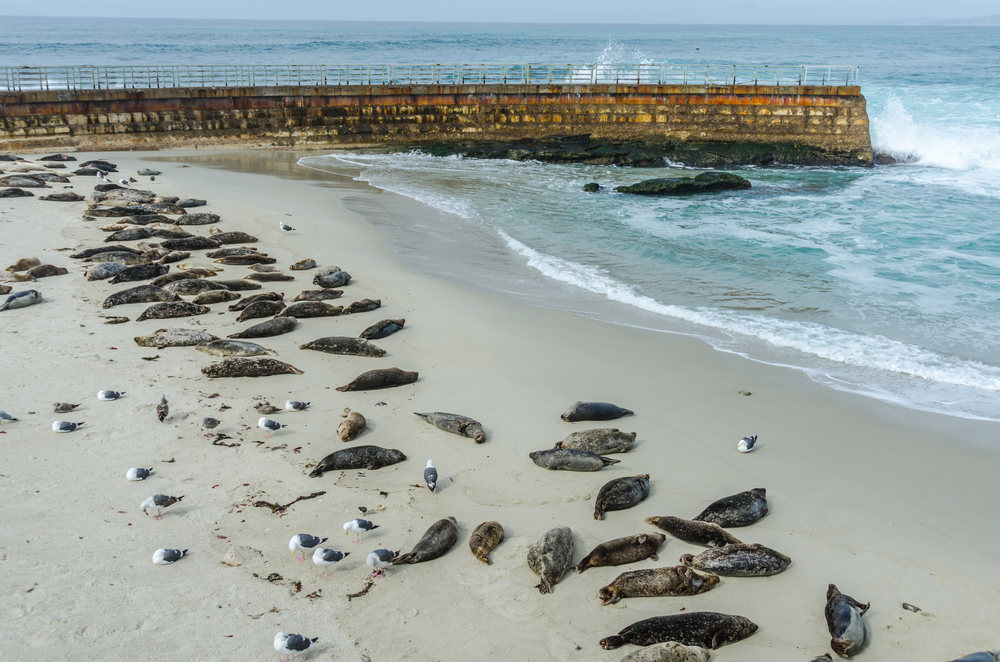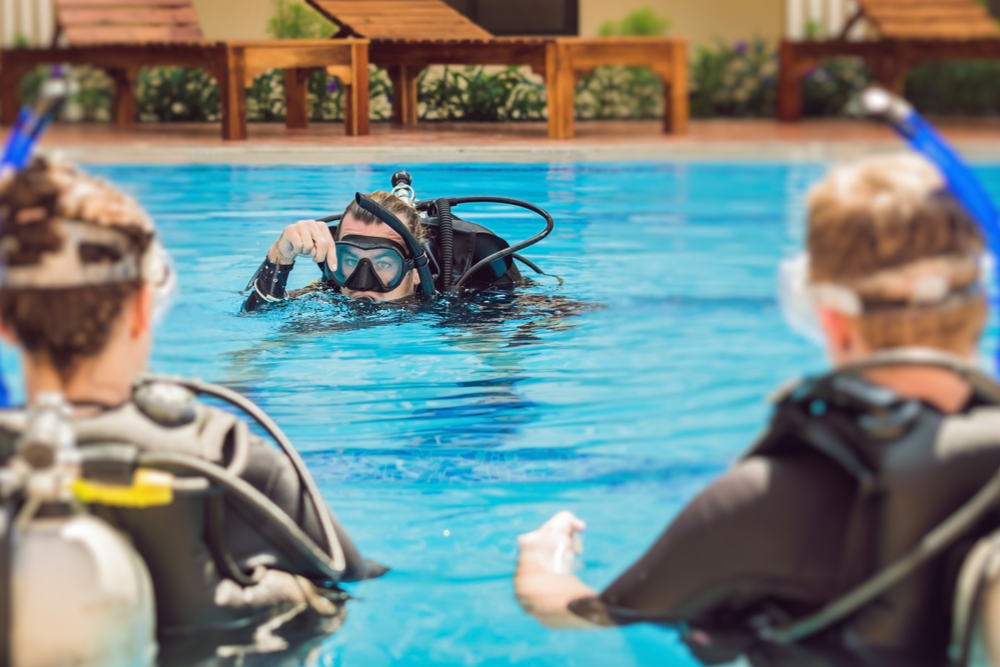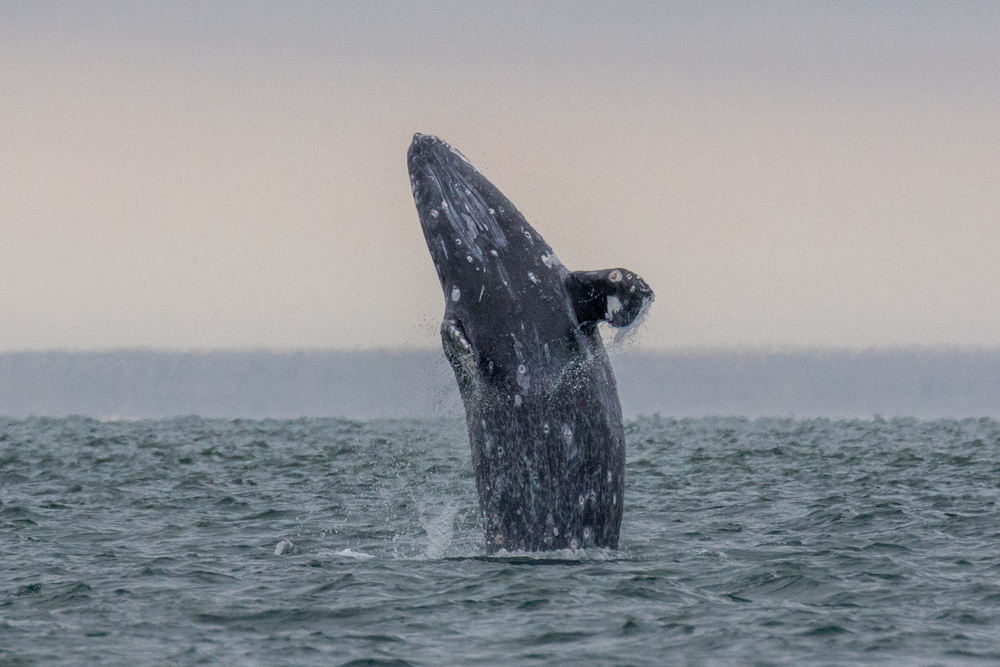Diving is quite a physically demanding activity, and it helps to be in good shape. Despite positive buoyancy while in the water, carrying the scuba unit into the water, as well as pushing all that equipment through the water requires a great deal of effort. Now imagine having to transit through the “impact zone” where both the rip currents and an eight-wave set has arrived…it’s all legs and cardio, or it’s a possible trip to the hospital. Good physical and mental fitness help you stay calm and mindful while exploring however many feet down in the water you are. It also helps divers avoid decompression sickness. Diving is just safer and more fun when you are fit.
1. Regular Weight Training
Weight training helps build muscle, increase strength, and improve bone density. Squats, Lunges, Calve Raises, Military Press, Curls, Pull Ups…these are just a few exercises you can practice while using the scuba unit for weight. Remember to focus on strengthening your lower back and abdominal muscles – these “core” muscles help in every motion you might encounter while diving.
2. Deep Breathing Exercises
Great lung function and breathing capacity can translate to longer dive times. One of the ways you can achieve this is by stretching your chest muscles and using deep breathing techniques. Another way to accomplish this same result is to focus on low impact cardiovascular exercises like cycling, swimming, and paddling.
3. Develop Leg Strength
There are times in diving, when it is essential you have the ability to call upon your “afterburner.” Whether it be the stronger than expected current you are fighting on your way back to the boat, or a wave interval of 6-8 seconds while trying to transit the stuff zone. These activities will place unique demands on your legs, with endurance and flexibility being key. At Trident Divers, we advise our student divers to regularly incorporate a minimum of 500 meters of kick intervals (using their dive fins) into their weekly swim regimen, beyond their regular swim activity.
4. Work Your Calves and Feet
You fin like a fish when diving, which means you are constantly pointing your toes and flexing your feet. Finning can lead to painful cramps in your feet or calves, but strengthening them can prevent cramping. Toe grabs strengthen the muscles that support your arch. Grabbing a sock with your toes and lifting it off the floor works these muscles. Equally important – always stretch after working any muscles.
5. Strong And Healthy Shoulders
The shoulder joint is the most mobile of all the joints in the body, but the shoulder joint is very susceptible to injury. Increasing flexibility is key and when using weights/resistance think lighter than other muscle groups. Shoulder raises, shoulder shrugs, as well as resistance band training can do wonders for stabilizing your shoulder girdle. Additionally, you can aid your shoulders by strengthening your biceps and triceps.
6. Maintain Good Posture
You may not realize it, but good posture is an important fitness component. The ability to sit upright and to maintain a stable spine in various orientations is vital to a healthy diver. Core strength development can be improved through sit ups, crunches, trunk twists, planks, leg raises, and side planks. I find a quarterly check-up with a chiropractor and masseuse can also do wonders for keeping the spine/posture in proper shape.
7. Stretching
Stretching allows your muscles to relax after being used; it also helps to increase blood flow through the muscles. This in turn improves nutrient flow, efficient oxygenation and metabolic waste removal. Relaxed muscles lead to functional flexibility, as well as better tendon and ligament health. Relaxed muscles also make it easier for the lungs to expand to their full capacity, which increases the volume of air they can hold. Relaxed muscles also consume oxygen slower than tense muscles, improving your oxygen efficiency which oftentimes results in lower air consumption…aka longer bottom times possible.
8. Eat And Drink Sensibly
Slow-burning carbs like a banana and whole-grain toast make for a great meal before your first dive. A single dive can burn in excess of 500 to 600 calories. Having something to snack on between dives is a really good idea; though you’ll likely want to avoid high fat foods for between dives. Research also shows that an adult diver can lose up to 1 quart of water per dive (AL80 tank) where the body’s fluids are used to rehydrate the dry air contained in a scuba tank. Rehydrate with something as simple as water, natural coconut water, or an electrolyte replacement. Dehydration is NOT your friend and can increase the risk of developing decompression illness (DCI/DCS).
9. Swim Often
We know you probably want to spend as much time diving as possible, but to make the time you have in the ocean a more pleasurable experience, don’t forget to include some time training your body for diving. Swimming helps maintain a healthy heart and lungs, burns calories, and increases your comfort in the water. When you get back to the ocean to dive, it’ll feel like second nature, and your dive will be a breeze. Make it fun!
10. Keep Your Mental Fitness Top-Notch
Being mentally fit is as important as being physically fit when it comes to diving. You want your mind to be sharp, alert, and calm. Eating healthy, nutritious foods, reading, and doing puzzles keeps your brain fit. Mentally rehearsing upcoming dives, including any emergency procedures that may arise, will also prepare your mind for what to expect while you’re in the water. Give yourself some peace of mind before every dive by relaxing, breathing, and checking yourself, your gear, your buddy, and your surroundings. At Trident Divers, we focus on “training your brain” not to panic!
Start Exploring with Trident Divers!
Diving can be physically taxing but an equally wonderful activity. Maintaining good physical and mental condition makes the experience so much better. At Trident Divers, our guides and instructors model what we preach. The primary focus of our professional staff is your safety – it is from that platform a memorable diving experience in a natural environment is just a call away. Call us at (619) 415-9426 or click here to book a scuba tour or course with us today!



